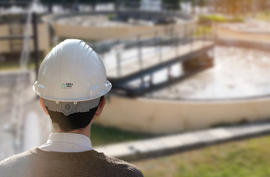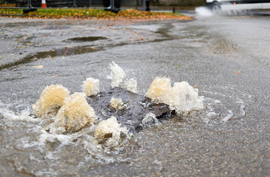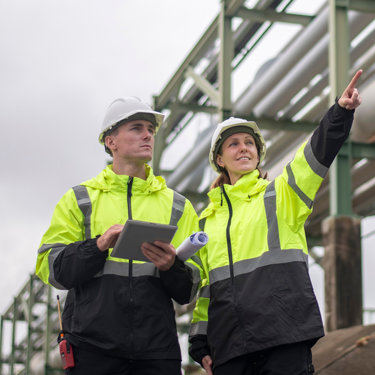Why chemical storage rules are so important
Published: 7 August 2020
By: Bill Atkinson, Chief Scientific Adviser
The explosion in Beirut, Lebanon, which has resulted in mass casualties and extensive damage, is a very sad and poignant reminder of why there are such strict rules on hazardous materials storage in most parts of the world. In the UK we have the Control of Major Accident Hazards (COMAH) Regulations, which formed the basis of the Seveso Directive for similar legislation within the European Union – the name taken from the town where a factory blew up causing environmental damage but thankfully no fatalities.
Accidents will always happen of course, but we have learned hard lessons in the past (eg the Flixborough disaster) and put measures in place to prevent them from reoccurring. The purpose of the COMAH Regulations - which includes hazardous chemical storage - is to prevent major accidents involving dangerous substances and limit the consequences to people and the environment of any accidents which do occur. Depending on the quantities and hazards of the materials to be stored on the site, it is judged to be ‘lower tier’ or ‘top tier’.
Lower tier sites must draw up a Major Accident Prevention Policy which covers accident scenarios for on-site releases and measures to be put in place to prevent them. A top tier COMAH site needs to produce a full safety report, in collaboration with local resilience stakeholders, which again demonstrates that all necessary measures have been taken to minimise the risks posed by the site with regards to the environment and to the local population.
Ammonium nitrate, in the form that was stored at Beirut, is an oxidising substance and would be covered by COMAH. It is a very common fertiliser due to the amount of nitrogen it can provide – it has the chemical formula NH₄NO₃. It is often supplied in the form of small porous pellets or “prills” and may have other chemicals added to provide balanced nutrients for certain types of agriculture (this fertiliser is often labelled as NPK – referring to the ratio of nitrogen, phosphorus and potassium).
Ammonium nitrate is also often one of the main components in mining explosives. It can be mixed with a fuel (such as fuel oil or diesel) and detonated by an explosive charge.
However, ammonium nitrate does not explode on its own, but at high enough temperatures, it can rapidly decompose creating nitrous oxides and water vapour. This sudden release and expansion of gases in confined conditions can cause an explosion. This appears to be what caused the 2015 Tianjin accident, which killed 173 people, at a hazardous goods storage facility in eastern China and also that in West, Texas in 2013 that killed 12 emergency responders and three members of the public.
We don’t yet know for sure what exactly led to the explosion in Beirut, but footage of the incident indicates it may have been set off by a fire or it could have been caused by exploding fireworks that may have acted like a primary explosive to the ammonium nitrate, which then exploded. Images of the explosion reveal a distinct reddish colour to the plume of gases following the blast. This is indicative of nitrogen oxides dioxide (NO₂) gas – from partially decomposed ammonium nitrate.
It has been reported that around 2,700 tonnes of ammonium nitrate had been stored in a warehouse for up to six years without any proper safety controls, after being unloaded from a vessel that had been impounded.
In the UK, in the event of any increased quantity of dangerous substances being stored on site that equals or exceeds the top tier COMAH thresholds, it is a legal requirement to inform the COMAH Competent Authority (CA) – the Health and Safety Executive in collaboration with the relevant national environmental agency.
The storage of large quantities of ammonium nitrate would not be permitted so close to a residential population. Even where ammonium nitrate is permitted, conditions are imposed on the quantities and methods of hazardous chemicals storage, depending on the grade.
We should never be complacent about chemical storage regulations – they can of course be flouted or circumvented by the unscrupulous or ignorant – but “red tape” is not always a bad thing. The rules are there to protect us from awful disasters like the one in Beirut.
If you would like advice on storing chemicals safely and compliantly please call us on 0333 6002424.
More from our Knowledge Hub
 News
NewsCelebrating and supporting our veterans at the Forces in Business Awards 2025
 Insights
InsightsRebuilding trust in water: Interim recommendations from the Independent Water Commission
 Insights
InsightsMitigating the impact of the 4 ‘I’s to reduce pollution in water networks
 News
NewsEsh Construction secures Northumbrian Water repairs and maintenance framework
Environmental compliance today, creating a sustainable tomorrow
Helping you reduce risk to the environment and your operation by managing assets compliantly while achieving commercial, ESG, and net-zero goals.
Contact our experts
